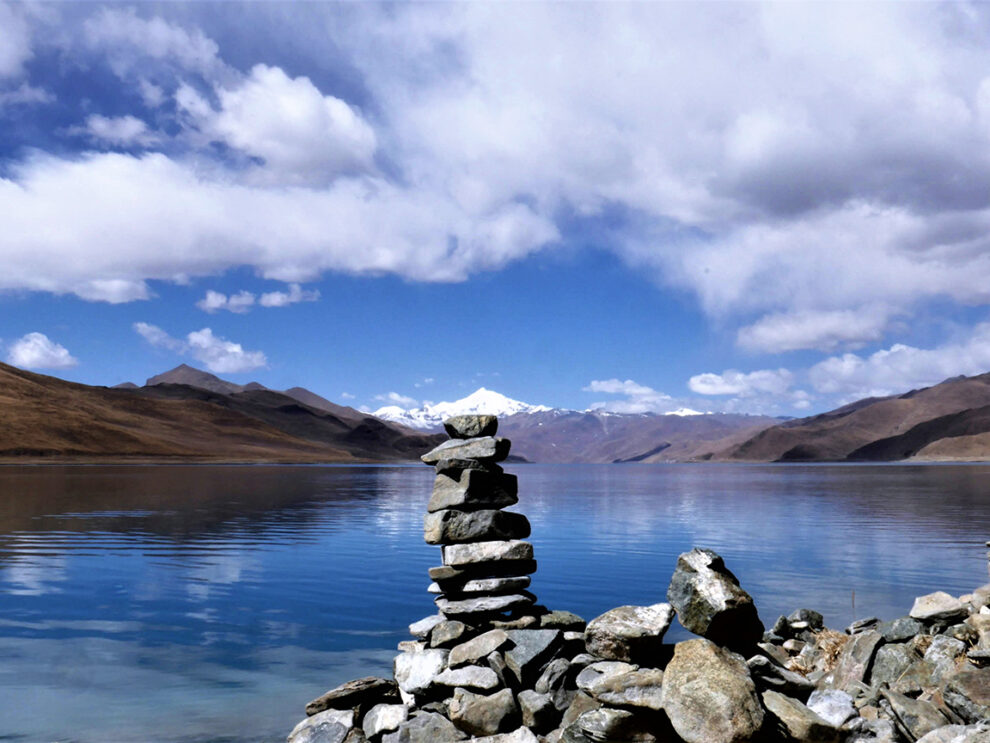Manuel de Coco was born in Athens, Greece on the 24th of December, 1975. He is a film director and writer, best known for his poetic and transcendental style. He is also renowned for traveling to extreme places to explore humanity's relationship with spirituality. 11 years after his previous film, the banned “Unknown Land” he returns to the big screen with his 2nd feature film, “Invisible World” (2023) filmed over a 17-year period in 10 countries (Tibet, Mongolia, Russia, Israel, Palestine, Greece, Italy, Vatican City, Nepal, India). As a result of Manuel's choice at the editing, scenes in Nepal and India were cut completely.
“Invisible World” review is part of the Submit Your Film Initiative

The film follows a particular motif in the way it unfolds, through a number of different chapters. Each one focuses on one of the aforementioned countries, initially highlighting the most major blights it faces, through voices on the radio, text on screen and/or narration. For Greece, for example, the consequences of the financial crisis are referred to, for Palestine the bombing by the Israelis, for Tibet the issues they face with China etc. These are followed by a screen of a tree in the desert highlighting Tibetan Buddhism and particularly the concept of Shambhala, while a number of spiritual and/or religious individuals talk about their particular religion, and how Shanbhala is interpreted through different terms in each one, all leading though, to the same place of eternal bliss, either called Paradise or Shangri-La for example.
The message about something more spiritual than religion echoes throughout the movie, with de Coco juxtaposing the concept with the issues the world faces nowadays, essentially promoting this type of spirituality as the solution. The message echoes quite appealing, but at the same time seems somewhat romanticized or even utopian, while its on-the-nose presentation does become somewhat annoying after a fashion. At the same time, though, the serenity and calmness that the director also promotes are echoing throughout the movie, essentially being two of its biggest traits.
The second aspect that truly works here is the ‘tour guide' approach, with the images of the various countries that appear throughout the 86 minutes of the movie being rather impressive, also due to their diversity. In that regard, DP Kostas Matikas has done an excellent job in capturing all of them, while in combination with the rather fitting, quite memorable music, the result frequently appears as a very appealing music video, which definitely adds to the entertainment the movie offers. The film also benefits from the editing, with Theodore Metaxas connecting the various aspects of the aforementioned motif with artfulness, and through a relatively fast pace that also works well for the movie.
Despite the whether one agrees with De Coco's messages and his cinematic approach, which himself, quite accurately, calls avant-guard docu-fiction, the fact remains that “Invisible World” is a true audiovisual spectacle, one that can essentially be enjoyed just as a lengthy (music) video and in general, a somewhat experimental film that definitely deserves a watch.















